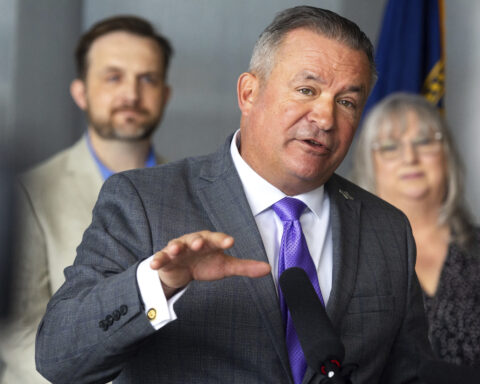In a significant policy reversal that could shape the future of regulatory engagement in Nigeria, President Bola Ahmed Tinubu has approved a temporary suspension of the contentious Financial Reporting Council (Amendment) Act 2023.
The move follows months of sustained advocacy by Nigeria’s organised private sector and signals the administration’s sensitivity to growing concerns over economic hardship, regulatory equity, and ease of doing business.
The 2023 amendment to the Act reclassified large private companies as Public Interest Entities (PIEs), subjecting them to annual regulatory dues ranging between 0.02% and 0.05% of their turnover, without a ceiling. In contrast, publicly listed firms were capped at a flat rate of ₦25 million, a discrepancy that drew sharp criticism for its perceived inequality.
At the heart of the controversy was the financial burden on non-listed but high-revenue businesses, many of which operate in already constrained economic conditions marked by inflation, currency volatility, high energy costs, and sluggish consumer demand.
Minister of Industry, Trade and Investment, Jumoke Oduwole, who announced the presidential directive on Sunday, acknowledged the disproportionate impact the amendment could have had on key sectors of the economy. In her words, “This interim directive is meant to create stability and send a clear message that this administration prioritises transparency, investor confidence, and fairness in regulatory processes.”
The decision came after a high-level consultation held on March 26, 2025, which brought together powerful industry voices, including the Oil Producers Trade Section (OPTS), Association of Licensed Telecommunications Operators of Nigeria (ALTON), and the Nigeria Employers’ Consultative Association (NECA). The message from the meeting was unambiguous: the new dues risked discouraging domestic investment and hurting job creation.
In response, the Ministry constituted a Technical Working Group, which met six times within three weeks. Their findings formed the basis of Oduwole’s recommendation to the President, culminating in the formal suspension.
READ ALSO: Tinubu has no plan to sack me as SGF – Akume
Under the new directive, the Financial Reporting Council is to immediately implement a cap of ₦25 million on annual dues for private PIEs, mirroring the cap already in place for listed companies. This interim measure is designed to create a level playing field while the Ministry of Justice reviews the legislation to determine if further amendments are required.
Importantly, the pause is not indefinite. It is part of a structured regulatory reassessment that may still result in changes to the original law. However, by freezing implementation now, the government is allowing room for dialogue and course correction, an approach welcomed by the business community.
At a time when the country’s economic fundamentals remain fragile, amid rising debt servicing obligations, currency pressures, and a cost-of-living crisis, the government’s decision to suspend the enforcement of this policy could offer short-term relief to the private sector.
Analysts say the suspension sends a positive signal to investors, particularly those considering large-scale investments in non-listed sectors such as manufacturing, agriculture, and technology.
The Financial Reporting Council (Amendment) Act 2023 was originally intended to expand regulatory oversight and promote financial transparency in large private companies, an objective widely supported by governance advocates. However, the method of implementation, particularly the imposition of uncapped levies, appeared to conflict with broader national goals of fostering growth and competitiveness in the private sector.
Oduwole’s statement acknowledges this tension and promises a more balanced approach moving forward. “This directive creates a stable environment for compliance… while allowing the Ministry of Justice to appropriately determine the longer-term path for seeking legislative amendments”, the minister noted.
While the temporary pause does not signal the death of regulatory reform, it explains the importance of inclusive policymaking. As Nigeria seeks to attract more foreign and local investment, reforms must be aligned with the realities of doing business in a complex and volatile economic environment.
The post Tinubu halts controversial financial reporting dues: What it means for Nigerian businesses, economy appeared first on Latest Nigeria News | Top Stories from Ripples Nigeria.





